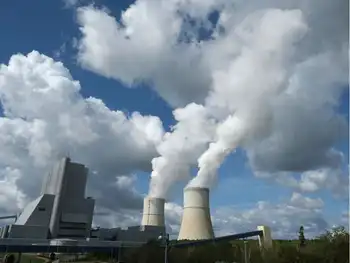“Green” no longer golden in job stimulus
- Noticeably absent from President Obama's latest economic-stimulus package are any further attempts to create jobs through "green" energy projects, reflecting a year in which the administration's original, loudly trumpeted efforts proved largely unfruitful.
The long delays typical with environmentally friendly projects - combined with reports of green stimulus funds being used to create jobs in China and other countries, rather than in the U.S. - appear to have killed the administration's appetite for pushing green projects as an economic cure.
After months of hype about the potential for green energy to stimulate job growth and lead the economy out of a recession, the results turned out to be disappointing, if not dismal. About $92 billion - more than 11 percent - of Mr. Obama's original $814 billion of stimulus funds were targeted for renewable energy projects when the measure was pushed through Congress in early 2009.
Even some of the administration's liberal allies have expressed skepticism over the original stimulus package's use of green investments as a way to spur quick employment growth at home.
"Spending on renewables is slow to get out of the door. Leaks to foreign companies is an inadequate driver of jobs and growth and may not create a strong exporting industry," said Samuel Sherraden, an economic analyst at the New America Foundation, a Washington-based progressive think tank.
Only about $20 billion of the allotted funds have been spent - the slowest disbursement rate for any category of stimulus spending. Private analysts are skeptical of White House estimates that the green funding created 190,700 jobs.
The Department of Energy estimated that 82,000 jobs have been created and has acknowledged that as much as 80 percent of some green programs, including $2.3 billion of manufacturing tax credits, went to foreign firms that employed workers primarily in countries including China, South Korea and Spain, rather than in the United States.
Peter Morici, a business professor at the University of Maryland, said much of the green stimulus funding was "squandered."
"Large grants to build green buildings don't generate many new jobs, except for a few architects," he said. "Subsidies for windmills and solar panels created lots of jobs in China," but few at home.
In one of several embarrassing disclosures for the administration, a report last fall by American University's Investigative Reporting Workshop found that 11 U.S. wind farms used their grants to purchase 695 out of 982 wind turbines from overseas suppliers.
That report raised alarms in Congress. Leading Democrats insisted that the money be spent at home, but restrictions on the funds proved impossible without the specter of a trade war.
While lawmakers fumed, economists were not surprised that green energy companies used the funds to purchase inexpensive Chinese wind turbines. Renewable-technology firms are under the gun to bring down costs so they can compete with cheaper traditional fuels, such as gas and coal, for electricity customers.
But without restrictions that prohibit the funds from being diverted overseas, Mr. Morici said, any further spending on green energy would only continue to enrich foreign producers. Chinese manufacturers in particular have taken the lead in making renewable-energy components, just as they have come to dominate many other industries because of advantages derived from state subsidies and the country's abundant pool of cheap labor.
In a trade complaint against China, the United Steelworkers union charged that Beijing is trying to corner the market on green jobs by showering billions of dollars of subsidies on domestic producers and discriminating against foreign firms and goods.
With growing proof that green jobs are heading overseas, even administration sympathizers and environmental advocates have largely abandoned the idea of pushing green funding as a way to stimulate the economy.
While he requested no additional stimulus funding for renewable-energy projects this week, Mr. Obama now portrays his green-energy agenda as good for the economy and jobs in the long term, as the government assists the private sector in evolving away from dependence on oil and coal.
"We see a future," he said in a speech in Cleveland, "where we build a homegrown clean-energy industry, because I don't want to see new solar panels or electric cars or advanced batteries manufactured in Europe or in Asia. I want to see them made right here in the U.S. of A. by American workers."
Time magazine recently reported that the White House last year saw the stimulus bill as a vehicle for enacting the president's ambitious, long-term environmental program, knowing that most of the economic effect would be felt years from now rather than immediately when the economy needed it.
The New America Foundation's Mr. Sherraden said it was "unwise" of the administration and congressional Democrats "to rely so heavily on the renewable-energy sector to drive the recovery."
The progressive think tank and other allies urged the administration to refocus its efforts on traditional road and transit projects, which economists say are more likely to provide quick jolts to the jobs market. The administration appears to have followed that advice in advancing a $50 billion program for building roads, transit and rail as the centerpiece of its latest stimulus plan.
"Green-energy projects in the United States are unusually slow to roll out because the industry is small and rife with political and market uncertainty," Mr. Sherraden said.
Despite the massive infusion of government funding in recent years, renewable technologies have captured only a tiny share of the energy market and remain heavily dependent on government funding to be viable. Because of the need to constantly renew government funding, private investors remain skittish about committing to new projects.
Mr. Sherraden said the problem with job leakage overseas promised only to get worse, because governments in Europe and Japan - which in years past spent lavishly on renewable energy - now are drastically cutting back their green subsidies as they try to pare enormous budget deficits.
With the United States left as the only major developed country still flooding the market with government funding, competition from overseas suppliers promised to be more fierce than ever, Mr. Sherraden said.
"It is impossible to guarantee that clean-energy stimulus is not leaked abroad," he said. "We have to recognize that we are funding job-creation programs in Germany, Spain, Japan and China."
Even if the green-energy funding is viewed as a long-term investment to replace dwindling reserves of oil rather than as pure economic stimulus, advocates have greatly exaggerated the benefits, said Kerry Lynch, senior fellow at the American Institute for Economic Research.
"For all the hype over wind and solar, the reality is that they contribute very little to our energy supply," she said, saying that wind accounts for less than 1 percent of total U.S. energy production and solar power for just one-tenth of 1 percent. "Together, they could power the country for all of three days a year."
Related News

Duke Energy Florida's smart-thinking grid improves response, power restoration for customers during Hurricane Ian
ST. PETERSBURG, Fla. - As Hurricane Ian made its way across Florida, Duke Energy's grid improvements were already on the job helping to combat power outages from the storm.
Smart, self-healing technology helped to automatically restore more than 160,000 customer outages and saved nearly 3.3 million hours (nearly 200 million minutes) of total lost outage time.
"Hurricane Ian is a strong reminder of the importance of grid hardening and storm preparedness to help keep the lights on for our customers," said Melissa Seixas, Duke Energy Florida state president. "Self-healing technology is just one of many grid improvements that Duke Energy is making…




